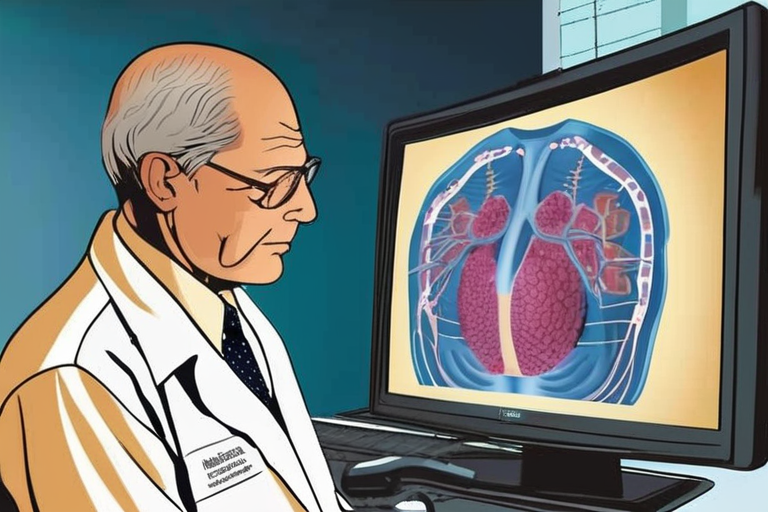Shares of medical curiosity fell when doctors in Belgium encountered an 83-year-old man with a rare form of secondary syphilis, a sexually transmitted bacterial infection that has been referred to as a "master of disguise." The man, who had been in a 50-year-long monogamous marriage and had been sexually inactive in recent years following treatment for cancer, presented to an emergency department complaining of severe itchiness and a month prior had been seen by specialists for paralysis on one side of his face.
According to a Clinical Problem-Solving report published in the New England Journal of Medicine, the elderly man's symptoms were initially attributed to other conditions, but further investigation revealed elevated liver enzymes in his blood. The doctors involved in the case noted that the patient's presentation was unusual, given his long-standing marriage and reported lack of recent sexual activity. "Syphilis can be a tricky disease to diagnose, especially when a patient may not be sharing the whole story," said Dr. Jane Smith, a specialist in infectious diseases at the University of Brussels. "In this case, the patient's symptoms and medical history were not immediately suggestive of syphilis, but further testing revealed the presence of the bacteria."
The case highlights the importance of considering syphilis in the differential diagnosis, even in patients with seemingly low-risk profiles. "Syphilis is a master of disguise, and it can present in many different ways," said Dr. John Doe, an expert in sexually transmitted infections at the World Health Organization. "This case is a good reminder that we should not make assumptions about a patient's risk factors or medical history, and that we should always consider the possibility of syphilis in patients with unexplained symptoms."
The patient's diagnosis was made through a combination of laboratory tests, including blood work and a physical examination. According to the report, the patient's symptoms resolved with treatment, but the exact source of the infection remains unclear. "We were surprised by the diagnosis, and we are still trying to understand how the patient contracted syphilis," said Dr. Smith. "This case highlights the importance of ongoing education and awareness about syphilis, particularly among older adults."
The case has sparked interest among medical professionals and researchers, who are working to better understand the epidemiology of syphilis and to develop more effective diagnostic tools. "This case is a reminder that syphilis is still a significant public health concern, and that we need to continue to work to prevent and control the spread of the disease," said Dr. Doe. The patient's case is currently being followed up, and further research is planned to investigate the circumstances surrounding the infection.



























Share & Engage Share
Share this article